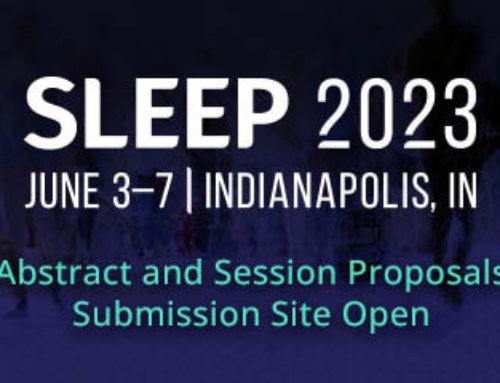EMBARGOED FOR RELEASE
June 12, 2008, at 12:01 a.m.
CONTACT:
Kathleen McCann
(708) 492-0930, ext. 9316
WESTCHESTER, Ill. – A history of chronic insomnia in parents is not only associated with elevated risk for insomnia but also with elevated risks for use of hypnotics, psychopathology and suicidal behavior in adolescent offspring, according to a research abstract that will be presented on Thursday at SLEEP 2008, the 22nd Annual Meeting of the Associated Professional Sleep Societies (APSS).
The study, authored by Xianchen Liu, MD, PhD, of the University of Pittsburgh, focused on 798 teenagers (450 boys and 348 girls), with an average age of 14.4 years, who completed a sleep and health questionnaire.
According to the results, compared with adolescents of parents without insomnia, participants of insomnia parents were more than twice more likely to report insomnia, daytime fatigue, and use of hypnotics. Adolescents of insomnia parents were also more likely to have depression, anxiety, and suicidal ideation and suicide attempts during the past year.
“These results suggest that a history of chronic insomnia in parents is not only associated with elevated risk for insomnia, but also with elevated risks for a wide range of mental health problems, substance use, and suicidal behavior in adolescent offspring,” said Dr. Liu. “Family sleep interventions may be important to enhance sleep quality and decrease risks for sleep disturbance, psychopathology and suicidal behavior in adolescents. Further studies are warranted to examine how and the extent to which genetic and environmental factors interact in determining sleep disturbances and psychopathology among adolescents.”
Insomnia is a classification of sleep disorders in which a person has trouble falling asleep, staying asleep or waking up too early. It is the most commonly reported sleep disorder.
It is recommended that adolescents get nine hours of nightly sleep.
The American Academy of Sleep Medicine (AASM) offers the following tips on how to get a good night’s sleep:
- Follow a consistent bedtime routine.
- Establish a relaxing setting at bedtime.
- Get a full night’s sleep every night.
- Avoid foods or drinks that contain caffeine, as well as any medicine that has a stimulant, prior to bedtime.
- Do not stay up all hours of the night to “cram” for an exam, do homework, etc. If after-school activities are proving to be too time-consuming, consider cutting back on these activities.
- Keep computers and TVs out of the bedroom.
- Do not go to bed hungry, but don’t eat a big meal before bedtime either.
- Avoid any rigorous exercise within six hours of your bedtime.
- Make your bedroom quiet, dark and a little bit cool.
- Get up at the same time every morning.
Those who suspect that they might be suffering from insomnia, or another sleep disorder, are encouraged to consult with their primary care physician or a sleep specialist.
More information about insomnia is available from the AASM at https://www.SleepEducation.com/Disorder.aspx?id=6, and “teens and sleep”, including a new questionnaire that assesses the level of sleepiness in adolescents, at: https://www.SleepEducation.com/Topic.aspx?id=71.
The annual SLEEP meeting brings together an international body of 5,000 leading researchers and clinicians in the field of sleep medicine to present and discuss new findings and medical developments related to sleep and sleep disorders.
More than 1,150 research abstracts will be presented at the SLEEP meeting, a joint venture of the AASM and the Sleep Research Society. The three-and-a-half-day scientific meeting will bring to light new findings that enhance the understanding of the processes of sleep and aid the diagnosis and treatment of sleep disorders such as insomnia, narcolepsy and sleep apnea.
SleepEducation.com, a patient education Web site created by the AASM, provides information about various sleep disorders, the forms of treatment available, recent news on the topic of sleep, sleep studies that have been conducted and a listing of sleep facilities.
Abstract Title: Sleep, Psychopathology, and Suicidal Behavior among Adolescents of Insomnia Parents
Presentation Date: Thursday, June 12
Category: Pediatrics
Abstract ID: 0194
# # #








